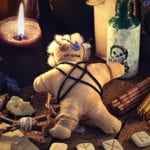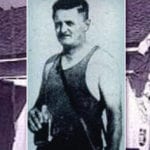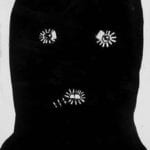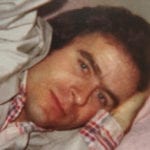 Mysteries
Mysteries  Mysteries
Mysteries  History
History 10 Surprising Stories About the Texas Rangers
 Humans
Humans 10 Philosophers Who Were Driven Mad by Their Own Theories
 Miscellaneous
Miscellaneous 10 Video-Game-Worthy Weapons and Armors from History
 Weird Stuff
Weird Stuff 10 Psychics Who Accurately Predicted Wartime Events
 The Arts
The Arts 10 Pieces of Art Inspired by a Broken Heart
 Health
Health 10 Science Fiction-Sounding New Medical Treatments
 History
History 10 Surprising Facts About the Father of Submarine Warfare
 Space
Space Ten Astonishing New Insights into Alien Worlds
 Weird Stuff
Weird Stuff 10 Bizarre Summer Solstice Rituals Still Practiced Today
 Mysteries
Mysteries Top 10 Haunting Facts About the Ghost Ship MV Alta
 History
History 10 Surprising Stories About the Texas Rangers
 Humans
Humans 10 Philosophers Who Were Driven Mad by Their Own Theories
Who's Behind Listverse?

Jamie Frater
Head Editor
Jamie founded Listverse due to an insatiable desire to share fascinating, obscure, and bizarre facts. He has been a guest speaker on numerous national radio and television stations and is a five time published author.
More About Us Miscellaneous
Miscellaneous 10 Video-Game-Worthy Weapons and Armors from History
 Weird Stuff
Weird Stuff 10 Psychics Who Accurately Predicted Wartime Events
 The Arts
The Arts 10 Pieces of Art Inspired by a Broken Heart
 Health
Health 10 Science Fiction-Sounding New Medical Treatments
 History
History 10 Surprising Facts About the Father of Submarine Warfare
 Space
Space Ten Astonishing New Insights into Alien Worlds
 Weird Stuff
Weird Stuff 10 Bizarre Summer Solstice Rituals Still Practiced Today
10 Chilling Manifestos From Killers
Killers who go on mass rampages often have a deep-seated sense of resentment for having been wronged by society and seek to turn their rage into violence in order to redress perceived injustices. It isn’t often that we can understand why these murderers do what they do or how they perceive the world, but once in a while, they leave manifestos behind to justify or glorify themselves, offering us a glimpse into the minds behind their heinous acts.
10 The Last Rhodesian
Before he perpetrated the massacre at a black church in Charleston, South Carolina, Dylan Roof is believed to have operated a racial hate website called the Last Rhodesian. On this site, he published a manifesto of over 2,000 words and a number of disturbing images. The manifesto goes into great detail about his hatred toward other races.
Roof believes black people are highly racially aware but inferior to white people. He claims that while he was raised in a non-racist household, he became obsessed with black-on-white crime in America and Europe after the Trayvon Martin case. He is also an apologist for slavery and segregation, claiming they were not as bad as history books have us believe.
He also mentions Jewish people, stating that the problem with them is not so much their race as their identity and ability to network: “If I could somehow turn every jew blue for 24 hours, I think there would be a mass awakening.” As for Hispanic people, he says there are both good and bad individuals and “there is good White blood worht (sic) saving in Uruguay, Chile, Argentina and even Brasil (sic),” but “they are still our enemies.” He expresses a bizarre respect for East Asians because “they are by nature very racist.”
He explains his reasons for choosing the location of his massacre: “I am not in the position to, alone, go into the ghetto and fight. I chose Charleston because it is most historic city in my state, and at one time had the highest ratio of blacks to Whites in the country.” The Southern Poverty Law Center ran Roof’s manifesto through a plagiarism detection program and discovered some passages and sentiments matched comments left by user AryanBlood1488 on the neo-Nazi website The Daily Stormer. The evidence from the manifesto gives weight to claims that Roof’s crimes should be considered a politically motivated act of terrorism.
9 2083: A European Declaration Of Independence
Hours before killing 77 people in a bombing and shooting rampage in Norway in 2011, Anders Behring Breivik released a 1,500–page manifesto on Facebook along with a link to a propaganda video on YouTube, which encouraged his 7,000 Facebook friends to use it as a blueprint for action. His given reason for the imminent attacks is disgust with Europe’s lack of cultural self-confidence that allows for Islamic colonization, blaming “cultural Marxists” and “multiculturalism” for a decline in Western civilization. He describes the evolution of his way of thinking—first stemming from opposition to Western attacks on Serbia and later influenced by other events such as the controversy over Muhammad cartoons and the awarding of a Nobel prize to Yasser Arafat.
He claims to have been “ordinated as the 8th Justiciar Knight for the PCCTS, Knights Templar Europe,” a supposed resistance group fighting the Islamization of Europe. The manifesto details much of the planning stages of his operation, including registering a company named Geofarm in order to purchase ingredients for explosives, the process of acquiring guns legally (“On the application form, I stated: ‘hunting deer.’ It would have been tempting to just write the truth: ‘executing category A and B cultural Marxists/multiculturalist traitors’ just to see their reaction :P”) as well as ordering necessary chemicals online. The manifesto also includes passages about his childhood, fitness, love life, and television watching habits.
Toward the end of the manifesto, he talks about preparing for his “martyrdom” by enjoying Christmas with his family and three bottles of Chateau Kirwan 1979, planning to “save the last flask for my last martyrdom celebration and enjoy it with the two high class model whores I intend to rent prior to the mission.” In 2014, Breivik sent a letter claiming to renounce violence. The letter also said that he would apologize to the families of his victims if he was allowed to set up a fascist political party from within prison.
8 My Twisted World
Misogynistic murderer Elliot Rodger killed six people and wounded 14 others in a shooting rampage because of his hatred of women. Less than 24 hours earlier, Rodger posted a video on YouTube of himself sitting in his BMW, recounting his social isolation and sexual frustrations. He also prepared a 141-page manifesto entitled My Twisted World: The Story of Elliot Rodger that explains his motivations and plans to lure people to his apartment to kill them. He wrote of his childhood and how the onset of puberty doomed him as he became convinced he would never be able to have sex. His writing clearly shows a personality dominated by resentment, jealousy, and frustration with a deep sense of injustice based on his perceived personal superiority and the inability of women to recognize it.
He blames women for his actions: “All of those beautiful girls I’ve desired so much in my life, but can never have because they despise and loathe me, I will destroy.” At the same time, he sees himself as the one who was consistently wronged by an unfair world: “All I ever wanted was to love women, and in turn to be loved by them back. Their behavior towards me has only earned my hatred, and rightfully so! I am the true victim in all of this. I am the good guy.” He also directed his hatred toward men who were successful with women. He exhibited particular ire for men of color whom he saw as below him: “How could an inferior, ugly black boy be able to get a white girl and not me? I am beautiful, and I am half white myself. I am descended from British aristocracy. He is descended from slaves. I deserve it more.”
His sense of wronged entitlement led him to condemn sex as a barbaric act because if he couldn’t have it, then no one should be able to. He gives a detailed account of his hatred of seeing happy couples together—particularly interracial couples—and his petty acts against them like throwing coffee at them or deliberately bumping into them. In the video posted the day of his attacks, he blames women for rejecting him and says, “I will punish you all for it.”
While the most common analysis of Rodger’s manifesto sees it as a reflection of deep-seated misogyny and murderous entitlement, some highlight the racial context. Rodger was half Asian, which he saw as a flaw in his quest to attain beautiful blonde women. He held racialized views of superiority, which could not explain how he was rejected by women while other men of color were successful. In the end, he assumed the world was at fault rather than his thinking patterns and sought a violent retribution against it.
7 Seung-Hui Cho’s Multimedia Manifesto
On the day of his attacks at Virginia Tech, Seung-hui Cho sent a multimedia package to NBC News with 23 pages of photographs and text and nearly half an hour of video. In it, he claims to have been forced into his actions by mistreatment at the hands of non-specified individuals: “Oh the happiness I could have had mingling among you hedonists, being counted as one of you, only if you didn’t f— the living shit out of me. You could have been great. I could have been great. Ask yourself what you did to me to have made me clean the slate. Only if you could be the victim of your reprehensible and wicked crimes, you Christian Nazis, you would have brute-restrained your animal urges to f— me. You could be at home right now eating your f—ing caviar and your f—ing cognac, had you not ravenously raped my soul.”
He expresses anger against hedonism and Christianity and a desire for revenge, but he never clearly states whom he hopes to get revenge against. He even claims to be killing the wicked for the sake of the innocent. The attached photos first show Cho smiling at the camera like an ordinary college student, then disturbing images of hollow-point bullets and Cho posing menacingly with guns and other weapons.
Police who reviewed the manifesto stated that the material held marginal value in helping to understand Cho’s motives. One mental health expert opined, “These videos do not help us understand [Cho]. They distort him. He was meek. He was quiet. This is a PR tape of him trying to turn himself into a Quentin Tarantino character.”
NBC initially only released a limited amount of the text, pictures, and video from Cho’s manifesto, claiming the unreleased material contained excessive profanity and violence. A glimpse of the material was caught by a blogger reviewing NBC footage of someone flipping a page of Cho’s writing.
6 To: America
Subj: Last Resort
Before rogue cop Christopher Dorner went on a cop killing rampage in early 2013, he posted an 11,000-word manifesto on his Facebook page addressed to “America” with the subject line “Last resort.” The manifesto details the real and imagined slights Christopher Dorner felt as a black man within the LAPD. He attempts to justify his actions by writing “this is a necessary evil that I do not enjoy but must partake and complete for substantial change to occur within the LAPD and reclaim my name.”
The manifesto reports that Dorner was terminated from his position within the LAPD as a result of reporting a female superior officer for using excessive force and kicking a suspect in the chest and face. He says he was unfairly targeted by the LAPD and characterized as a bully for objecting to racist incidents such as fellow officers liberally using the N-word or police recruits singing Nazi Youth songs, ultimately losing his badge for violating “the blue line,” the police code of silence over fellow officers’ misdeeds.
It was in response to this injustice, he says, that led him to his murderous actions. He also paradoxically expresses sentiments in favor of gun control, describing how ludicrously easy it was to obtain the weapons to use in his deadly attacks. He thanks his friends, his doctor, politicians, actors, and other public figures and regrets not being able to see The Hangover III, World War Z, and the end of the third season of The Walking Dead.
Some have attempted to turn Dorner’s manifesto into a redemption narrative, focusing on how corruption and racism within the LAPD drove him to his actions. Ta-Nehisi Coates of The Atlantic argues this redemptive narrative is rendered void by Dorner’s slaying of two indirectly related innocents, Monica Quan and Keith Lawrence, the daughter of a retired police captain who had represented Dorner in the disciplinary proceedings that leading to his dismissal and her fiance.
5 Industrial Society And Its Future
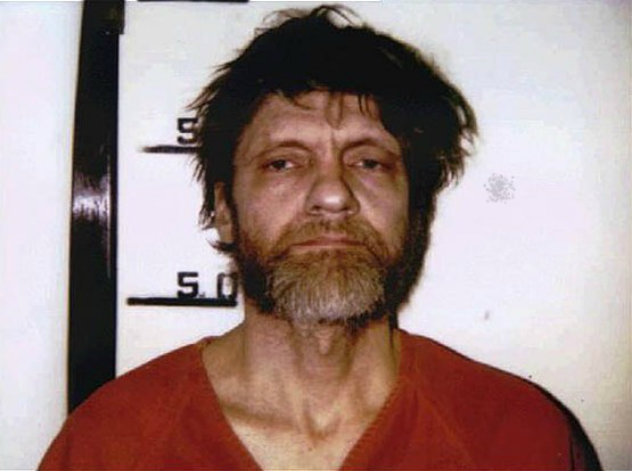
Theodore Kaczynski, known as the Unabomber for his early predilection for targeting universities and airports, began a campaign of terror in 1978 that lasted until 1995. He was finally captured in 1996. In 1995, he sent letters to media outlets and some of his victims, offering to bring his bombings to an end if his manifesto, Industrial Society and Its Future, was published verbatim in a major news outlet. The Washington Post and New York Times agreed to publish the 35,000-word manifesto out of concern for public safety after consultation with Attorney General Janet Reno.
The Unabomber rails against an “industrial-technological system” that has robbed humanity of its autonomy and connection to nature. The industrial revolution has been disastrous for both the natural world and the human race as wide economic and social divisions have been created and permeated by technology. He attacks both conservatives and leftists, but he reserves the most ire for the latter for their alleged tendency to over-socialize people and make people ashamed of their own natures by instilling feelings of inferiority through political correctness and hypersensitivity. He believes modern liberals stand up for the rights of the oppressed because of their own deep-seated feelings of inferiority. Conservatives, by contrast, are hypocrites who pretend to stand up for traditional values and freedom but really support the inevitable growth of Big Industry and Big Business.
He argues there is a human need for what he calls the “power process”—goal, effort, and attainment of goal, as well as subsequent autonomy. Technological-industrial society makes the attainment of “real goals“—the needs of survival—far too easy, forcing the creation of artificial goals of scientific and technological progress, enforcing social control over the population. Therefore, he calls for a revolution against the entire economic and technological basis for the modern world. His ideal society is primitive, reminiscent of the 19th-century ideal of the “noble savage.”
4 Natural Selector’s Manifesto
Before Finnish teenage gunman Pekka-Eric Auvinen killed eight victims at the Jokela High School in 2007, he compiled online manifesto over the course of several weeks under the username Sturmgeist89, weaving far leftist and neo-Nazi thought into what he called the Natural Selector’s Manifesto. An earlier YouTube account, NaturalSelector89, had featured more material but was closed following an online argument with, of all people, the Amazing Atheist, who had criticized YouTube users who glorify violence. His new account was known to fellow students. Rumors of his views and possible bombing plot were circulating, but nothing was done to prevent it.
Natural Selector’s Manifesto was uploaded shortly before the attacks, clearly influenced by the writings of the Unabomber, French radical ecophilosopher Pentti Linkola, Friedrich Nietzsche, and Plato’s Republic. Auvinen believed that 94 percent of the human race was made up of inferior subhumans, “weak minded and ignorant retardos, masses that act like programmed robots and accept voluntarily slavery. But not me! I am self-aware and know what is going on in society! I have a free mind! And choose to live free rather than live like a robot or slave! […] Compared to you retarded masses, I am actually godlike!”
He saw himself as member of the 6 percent of superior beings he classified as individualistic and manipulative. “I cannot say that I am of the same race as this miserable, arrogant, and selfish human race. No! I have evolved a step higher!” His overwhelming sense of superiority over others led him to idolize previous school shooters and develop a philosophy justifying the desire to annihilate those he considered to be group-centered, inferior beings. “I, as a natural selector, will eliminate all who I see unfit, disgraces of human race and failures of natural selection.” His views had been noted by fellow students and teachers before, and his final film entitled “Jokela High School Massacre—11/7/2007” showed Auvinen posing with a gun. And yet, nothing was done until it was too late.
3 To Whom It May Concern
In 2008, Tennessee man Jim David Adkisson, motivated by a “hatred of the liberal movement” opened fire on a liberal, gay-affirming Unitarian church, killing two people. Police found a handwritten letter in Adkisson’s car detailing his attack. In the letter, he blames liberals for destroying every institution that made America great—from the Boy Scouts to the Church—through mass media and claims the Democrats want the terrorists to win.
He accuses the Unitarian church of being a cult of liberals worshiping a god of secularism. He considers the church a haven of perversity and Marxism, a “nest of un-American vipers.” He expresses his desire for liberals to be killed by “decent Americans,” and sees his actions as a political strike against the “foot soldiers” of the “Marxist” progressive movement.
Adkisson expected to be killed by police after his attack, but he was instead captured. The final section of his manifesto reads, “Tell the cop that killed me that I said, ‘Thanks, I needed that.’ I have no next of kin, no living relatives. If you would, take my sorry carcass to the body farm, or donate it to science, or just throw me in the Tennessee River.” In his home, police discovered political books by right-wing talk show hosts Michael Savage, Sean Hannity, and Bill O’Reilly, which gave some insight into how his hatred of the liberal movement was exacerbated to the point of murder.
2 Joker For President
In 2014, Jerad and Amanda Miller went on a killing spree in Las Vegas that took the lives of two police officers and one innocent bystander. Prior to the attacks, they were active on Facebook and YouTube, promoting extreme pro-gun and anti-government views. They were vehement supporters of Cliven Bundy in his standoff with the federal government. They even made a pilgrimage to the Bundy ranch only to be asked to leave because of Jerad Miller’s felony conviction. On June 2, Jerad posted a manifesto on his Facebook page that expressed his anti-government convictions: “We cannot with good conscience leave this fight to our children because the longer we wait, our enemies become better equipped and recruit more mercenaries of death, willing to do a tyrant’s bidding without question. I know you are fearful, as am I. We certainly stand before a great and powerful enemy. I, however, would rather die fighting for freedom than live on my knees as a slave.”
At the time of the 2012 election, Jerad Miller posted a video to YouTube of himself standing in front of an American flag, dressed in the costume and the makeup of the Batman villain the Joker. “Year after year I’ve watched you Americans, my fellow citizens, vote for tyranny. And it’s always the lesser of the two evils, you don’t want too much tyranny too fast . . . But we have a chance to make history, ladies and gentlemen, you can vote for the more evil . . . When you vote for the Joker, you will know exactly what you will get: total and utter tyranny.”
He compares himself favorably to Libertarian nominee and former New Mexico governor Gary Johnson and rants about the National Defense Authorization Act, the UN’s Arms Trade Treaty, FEMA concentration camps, and vaccinations. What at the time was a weird and theatrical political video would become a chilling look into the psychological state that drove the Millers into their murderous rampage.
1 The Diaries Of Eric Harris And Dylan Klebold
Notorious school shooters Eric Harris and Dylan Klebold, now more commonly known as the Columbine shooters, left behind them a variety of written materials: personal diaries, pictures, essays, a website, a detailed plan of their attacks, and even short stories. These writings can help to understand the social alienation and paradoxical feelings of superiority and self-loathing that drove the pair to commit their horrible crimes. Much of the content of Harris’s and Klebold’s writing is typical of an antagonistic teenager, combining the immaturity of a child with an adult-like sense of superiority and desire for lethal action.
Harris’s diary opens with the words “I hate the f—ing world.” Their hatred wasn’t clearly aimed at any single group. It was broadly applied to the entire human race, except for themselves: “We hate n—rs, s—ks . . . and let’s not forget you white P.O.S. also. We hate you.” The targets of Eric Harris’s hatred were heterogeneous—racists, Star Wars fans, fitness fanatics, martial artists, people who mispronounce words, slow drivers, the WB network. They absorbed the Nazi concept of a master race, but they limited it to themselves. “We’re the only two who have self-awareness.”
Dylan Klebold wrote letters to girls he had crushes on, only to have them frequently devolve into self-hating rants about the reasons no one would ever want to be with him. The day before their assault on the school, Klebold wrote, “About 26.5 hours from now the judgement will begin. Difficult but not impossible, necessary, nerve wracking & fun. What fun is life without a little death? It’s interesting, when I’m in my human form, knowing I’m going to die. Everything has a touch of triviality to it.”
Since the Columbine attacks, the truly worrying thing is how the writings of Harris and Klebold have gained popularity among other alienated youth. The owner of one “fan site” describes her logic: “The reason I believe Eric and Dylan were really cool to do what they did is because they stood up for themselves. Every single day they were teased, and I can relate to that.”
David Tormsen is in dire need of brain cleanser after writing this list. Send him your positive thoughts and love poetry at [email protected].
